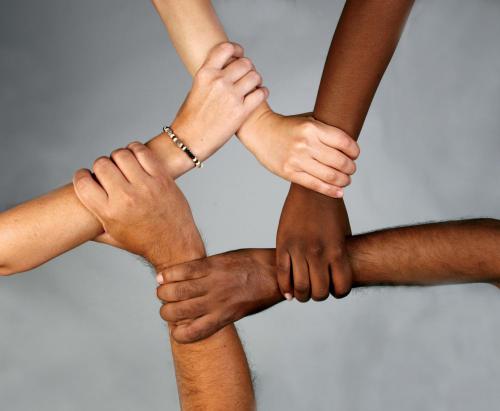I suppose if you could go back in time, and ask someone in the year 1915 “Is Gender Mutable?”, they would say something like “I think this kid Baby Ruth who is pitching for the Red Sox won’t amount to much. Now what was your question?”
Seriously, though. They would look at you strangely and say “Uh, no. Boys are boys, and girls are girls.” They probably would think that the question is absurd.
And yet, a century later, we know that one’s gender is mutable. As Caitlyn — nee Bruce — Jenner recently demonstrated (although he was hardly the first), one’s gender does not neatly and conveniently fall into one of two categories. Our body parts might say we are a particular gender (although, in rare cases, not even that), but our self-identity may point us to placement in the complete opposite gender, or somewhere between the two genders (transgender) or even in a “none of the above” category (agender).
Now comes Rachel Dolezal, the now-resigned president of the Spokane Washington chapter of the NAACP, who is, as it turns out white, but who “identifies as black.” And I, like others, am forced to ask…. “Can you just DO that?”
My initial reaction is “no”, just as my 1915 friends would say “no” to gender mutability. But since my 1915 friends are demonstrably wrong, I must look deeper into this racial identity issue.
I suppose the answer to racial identity turns on how you define “race”. Is it heritage or lineage? Or is it skin color? Or experience?
I recall reading several Charlie Chaplin biographies in which it was noted that Chaplin identified with Jews to the point of claiming (early in his career) that he was himself to be of Jewish descent (he wasn’t). While it is possible for one to convert their religious beliefs to Judaism, that does not mean that one’s personal heritage is Jewish. Except for those few (and unconfirmed) experiences, however, it doesn’t appear that Chaplin ever seriously tried to commit a fraud on the public by claiming a false lineage.
I think this is the bucket in which Dolezal finds herself. Like Chaplin/Jew, Dolezal may identify with “the black experience” — whatever that means to her (feeling oppressed, perhaps, or discriminated against). But unlike gender — which is not set in stone — a person’s ancestry cannot be changed or altered. She may identify with it, but she was not born into it. Biology is not the same as history. If I am descended from Caucasians, I am Caucasian, no matter how much I “feel” or “identify” with other races.
The Dolezal matter meets at the intersection of two societal pressures — the one that tells us to stand up and be “true to who we are”, and the one that tells us that we can “be whatever we want be”. It’s the latter one that is, in my view, pollyannish, flawed, and silly – a point made by the Pythons here with Stan’s “right to have babies”:
Which isn’t to say that all conflicts of racial identity are silly. Hell, even our President has written about about periods in his life where he both rejected and identified himself as “black”. But unlike Dolezal, he was born to parents of different races. That is an entirely different matter.
Nor is this to say that Dolezal (or anybody simlarly situated) should not be able to live her life as an African-American, immersed in that culture and fashion sensibilities. Her hoax is mostly — mostly — a victimless crime. It does not appear that she received any academic, professional, or personal advancement for ‘being black’ as far as anyone can establish, and she didn’t lie on her college applications. In fact, there is almost universal consensus that the black community has been enhanced due to her efforts at NAACP and other organizations (accompanied by almost universal consensus that she didn’t have to “be black” in order to do those things).
On the other hand, should she have been a black spokesman, and opine on the “black experience” when she, unlike most blacks, could have “opted out” anytime she wanted? And what about the reports that Dolezal sued Howard University in 2002 for discriminating against her…. for being white?
Perhaps there are psychological issues which make Dolezal a less-than-ideal poster child for transracialism. Dolezal’s alleged behavior reminds me of Munchausen Syndrome, a rare psychological condition wherein patients lie, fake symptoms, alter medical tests, and even hurt themselves in order to fabricate a medical drama so they can remain at the center of everyone’s attention.
So setting aside, Dolezal, we return to the original question. Is race mutable? And I would still have to say, on the whole, “no”. Race implies heritage, and heritage is something that cannot be changed. Race also implies culture, and while one can immerse deeply oneself in a different culture (the way, say, a white boy like me could become an aficionado of Bollywood), one cannot change his lineage.
That said, one hopes that, looking 100 years from now into the future, there will be no such thing as transracialism. It is conceivable that we will live in a near-uniracial society (a “mongrel society” warned the white supremacists once, as if that was a bad thing) where all this is irrelevant. Where there is no “black experience” or “white experience”… but rather, a human experience. I wonder what our descendants would make of this Rachel Dolezal matter. In the meantime, let’s be true to ourselves, I say.

